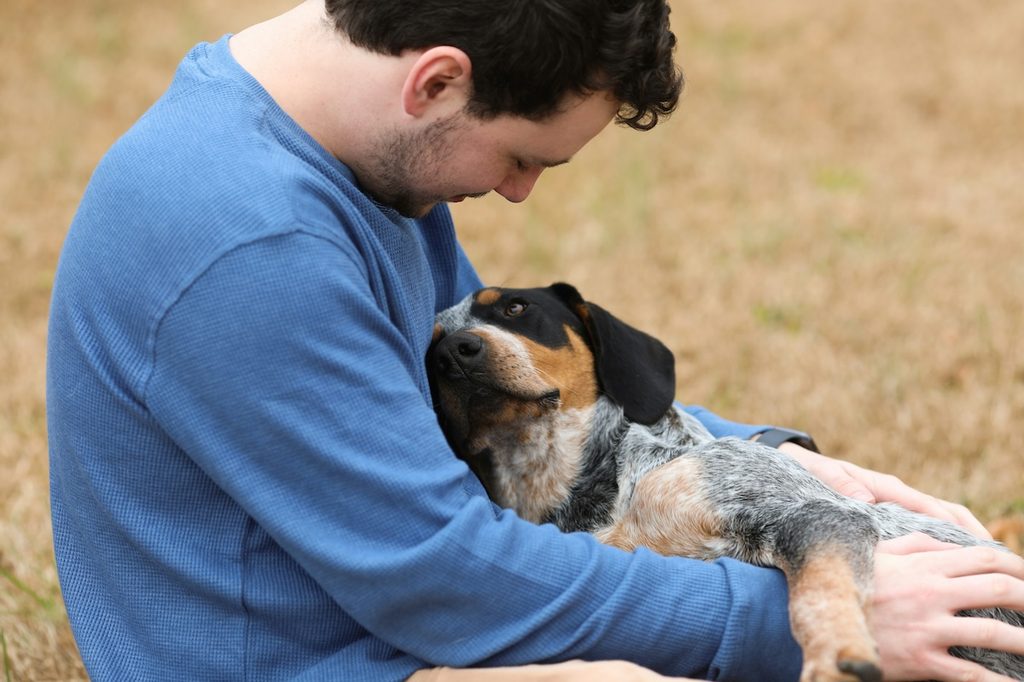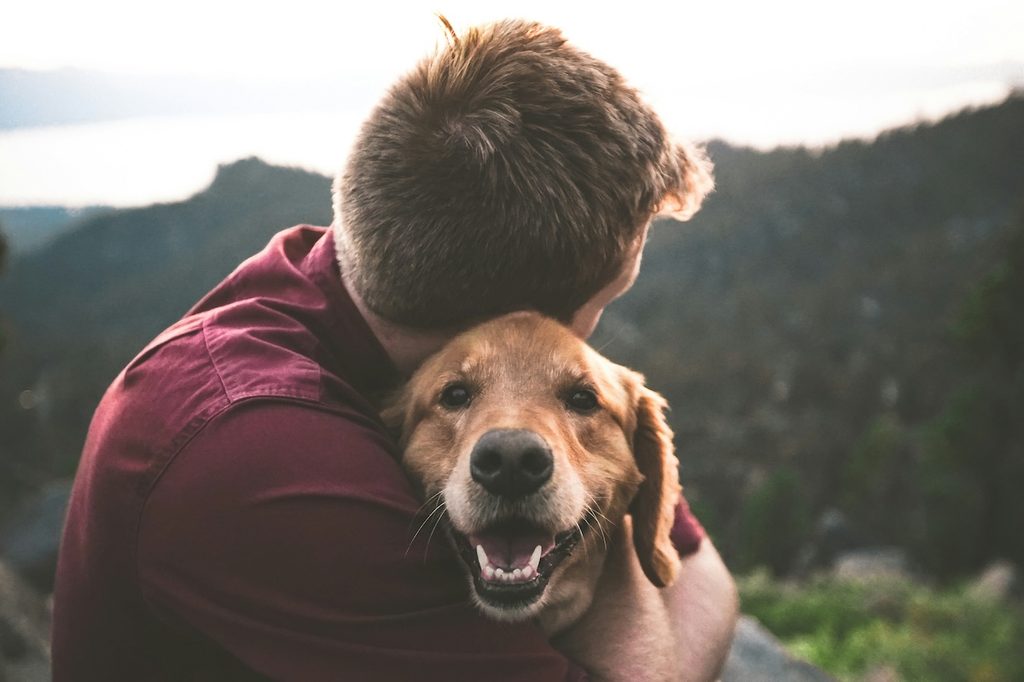
Our attitude toward dogs has shifted significantly in modern times, with humans considering their pets more like family members that they love just as much (or more) than their two-legged relatives. However, we have long been partners with canines, which have helped us hunt for food and protected us with our lives. This long-running partnership comes even though we don’t speak the same language.
Therefore, you may wonder what is going on in your dog’s head when they display certain behaviors. For instance, you may ask, “Why does my dog lean on me?” The answer is generally straightforward and sweet. However, a dog leaning on you may be a cause for concern, too.
Why does my dog lean on me?

TL;DR: Your dog probably likes to lean on you because they love you. Even large dog breeds get a kick out of leaning their heavy heads on your legs, which make the best pillows. Sometimes, they may try to tell you they need physical or emotional help. Here are more insights.
Affection
Generally, your dog leans on you because they want to be close to you. Dogs are social creatures. In the wild, they live in packs and may snuggle close to one another for warmth, comfort, and security. While your pup may be anything but wild (except around dinner time), they likely still have this innate desire for closeness and connection. A dog may (literally) lean on you for these feelings. This desire for cuddles may also cause them to want to sleep in your bed at night.
Begging
Do you find your dog is keen on leaning on you while you consume dinner or right after you pull a snack out of the pantry? Your dog may rest their head on your lap as a sweet, gentle nudge that they’d like a bite, too. While some foods are safe to give in moderation, others, like chocolate, can be harmful. You might be better off treating your furry friend with pets.
Sickness or stress
Dogs naturally desire closeness. However, some dogs may lean on you to flag that they are feeling anxious or sick. If your dog recently underwent a significant life change, like a new pet in the home, or is displaying signs of illness, like decreasing appetite and energy, you may want to speak with a vet or trainer. They can give tips and treatments to help your dog adjust and heal.
Closing thoughts

Dogs often lean on humans — this behavior is normal. Dogs are social pack creatures that desire closeness, protection, and connection. In the wild, they may snuggle close at night. In your home, they may use you as a pillow.
For the most part, this behavior isn’t a problem to fix, and you can safely enjoy the snuggles (and ego boost that comes with this newfound knowledge about why your dog leans on you). However, dogs sometimes lean on us for other reasons, such as flagging that they aren’t feeling well. If you’re concerned about your dog’s well-being, contact the vet.



